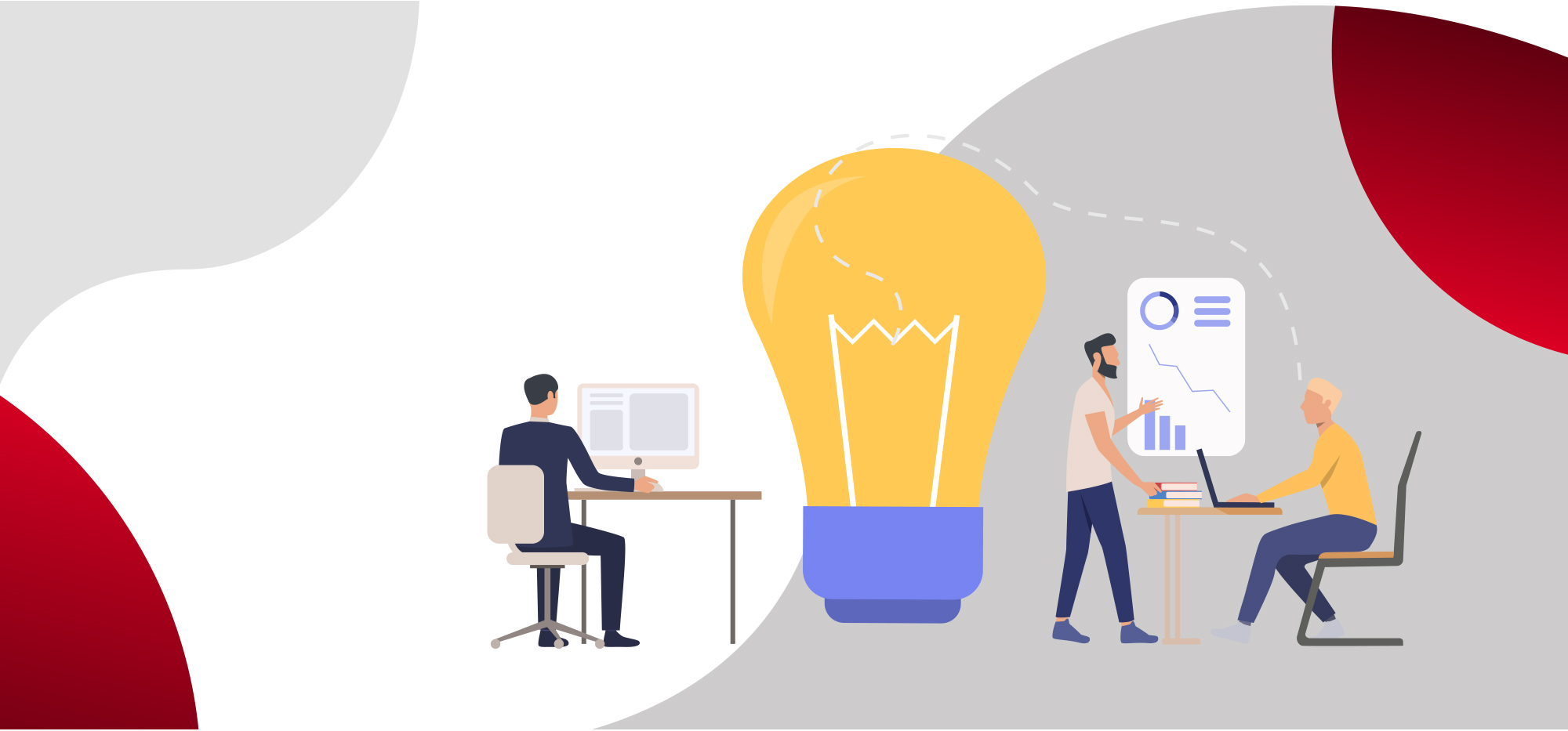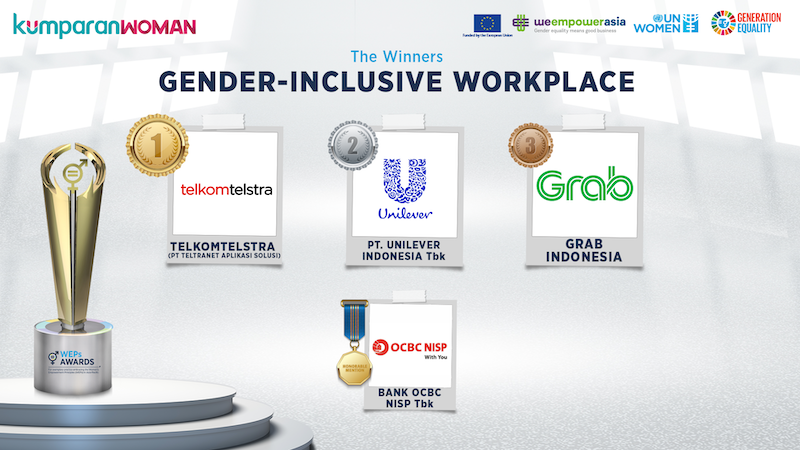Telkomtelstra won two awards in the Indonesia Awards Ceremony of the UN Women 2020 Asia Pacific WEPs Awards because of its active programs and consistent campaigning for gender equality in the workplace. Telkomtelstra was selected as the winner of Indonesia’s WEPs Award for Gender Inclusive Workplace and also as third place winner in Community & Industry Engagement.

First Winner of the UN Women 2020 Asia-Pacific WEPs Awards for Indonesia in the “Gender-Inclusive Workplace” category 
Third Winner for the category “Community & Industry Engagement”
For the Gender-Inclusive Workplace category, Telkomtelstra was selected as the first-place winner with their workplace integration initiative to support female employees. “This award is given to companies for their achievements in adopting gender-inclusive actions, including innovative approaches, support for flexible work schemes, reducing gender-based wage gaps, and promoting career development for women,” said Josephine Setiono, Executive Director of the Indonesia Global Compact Network (IGCN) at the Indonesia Awards Ceremony of the UN Women 2020 Asia Pacific WEPs Awards.
Telkomtelstra’s President Director, Erik Meijer, greatly appreciated winning the two WEPs Awards: “I’m very proud of everyone in our company who have contributed to us becoming a winner, but our work is not completed yet. In Indonesia, and also in our own company, gender equality has not reached an even 50%-50% split between male and female workers. As long as we have not achieved that, it means we still have work to do,” he said when receiving the award.
According to Erik, Telkomtelstra has been collaborating with the Indonesia Business Coalition for Women’s Empowerment (IBCWE) and UN Women to increase gender equality initiatives in the workplace. “Thank you to IBCWE and UN Women who have worked together with us and provide significant input and feedback on our progress and initiatives. At first, we felt we were already doing well enough, but after going through some of their audits and reviews, we got a lot of input to make us do even better. We are also conscious to not become complacent and always listen to new ideas and input in order to improve further,” he said.

Erik explained that Telkomtelstra was established six years ago and, within its first 2 years, several initiatives were immediately implemented to drive gender equality in the workplace. “One of them was to form ‘Brilliant Connected Women’, which is a community within our office of male and female employees, to discuss all matters related to gender equality,” he explained.
In 2016, he continued, Telkomtelstra also signed a “Pledge for Parity”, supported by management and employees, that included several actions that, fortunately, have all been implemented. “The challenge of gender equality, especially in the technology sector, includes the relatively small number of prospective female employees who are university graduates in STEM (science, technology, engineering and mathematics) fields,” Erik stated.
Even in the midst of these challenges, continued Erik, by implementing the principle of gender equality, Telkomtelstra succeeded in increasing women’s participation in their workforce. “We are starting to feel the results. We have succeeded in increasing women’s participation in our labor force – and particularly in technical roles – by 10%. In 2016, women comprised only 16% of the STEM sector workers, and now this figure stands at 26%,” he explained.

Indonesia’s Finance Minister Sri Mulyani Indrawati, who was the keynote speaker at the Awards event, conveyed her appreciation for businesses and company leaders who support gender equality initiatives. “I appreciate and I am pleased if business leaders are rewarded for continuing to promote gender equality. This is morally important, good for business, as well as supportive of the government’s efforts to advance the national economy,” she explained.
According to Minister Mulyani, the statistics show that Indonesia still has some homework to do. The number of women leaders in business has stagnated over the last two decades. From 1990 to 2010 in particular, the World Economic Forum estimated that if not accelerated, the current trend shows that gender disparities in labor force participation would not be eliminated and equal opportunity would not be provided until 200 years from now.
This is especially true with the COVID-19 crisis, which has also put pressure on the global and national economies. “In the 2020 ADB women’s preliminary report, 54% of the 75 million workers in restaurants and accommodation providers are women. They are the ones who have suffered the most from COVID-19. Women lost 50% of their working hours while men only lost 35% of their working hours. Therefore, this is the asymmetrical impact of COVID-19. This is especially so in the formal sector in Asia. The pandemic has hit society hard, which is particularly true for female workers who are suffering more. This condition has further increased gender inequality, and there has been a decrease in the participation of the female workforce,” said the Minister.
Realizing this, the Minister of Finance emphasized that the issue of gender equality and inclusion is very important. “This is good for the economy. If we are unwilling to solve the gender wage gap, the world will lose US$23 trillion, more than 12 times that of the Indonesian economy. In the Asia Pacific, the figure is US$4.5 trillion lost if we do not implement gender equality. This is a very large number,” she said. Valerie Julliand, UN Indonesia Resident Coordinator, said that UN Women Indonesia appreciates the great commitment of business actors in Indonesia in encouraging and supporting women’s economic empowerment. “The UN is of the view that everyone can and should fight for equality. Business leaders and company leaders are in the right position, together with the government, to empower women. “Currently, there are opportunities for the private sector to develop gender equality and sustainable development, especially in the context of the pandemic,” she said.(*)



